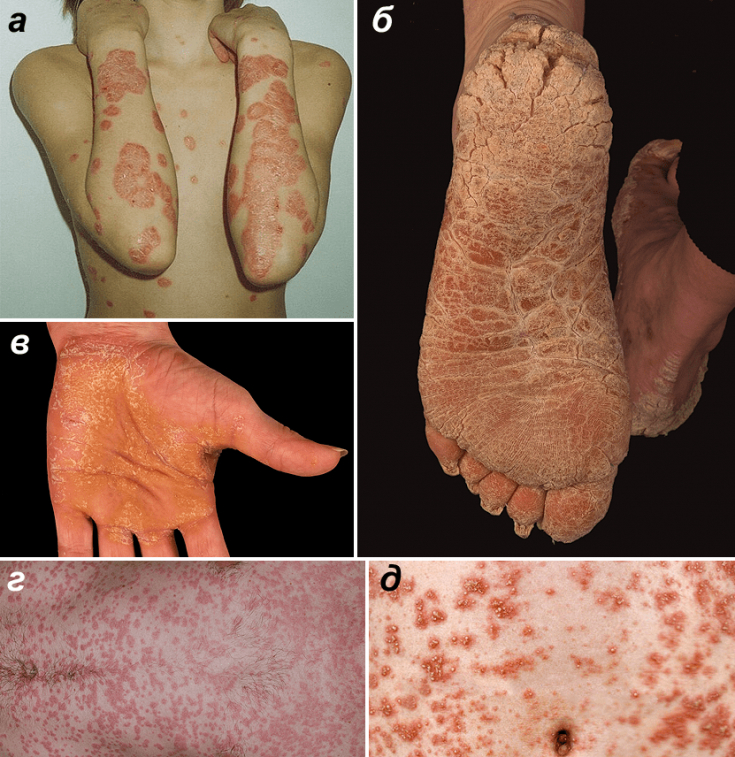Two new joint guidelines from the American Academy of Dermatology and the National Psoriasis Foundation focus on the treatment of psoriasis in adults, focusing on the pathogenesis of nosology and comorbidities.
In the article estet-portal.com you can get acquainted in detail with the drugs of modern disease-modifying therapy for psoriasis, recommendations for multiple organ examination of the patient in order to identify comorbidities, as well as complications.
Optimal therapeutic tactics and timely diagnosis allow to prolong the life of the patient.
Modern disease-modifying therapy for psoriasis
The guidelines recommend the TNF-alpha inhibitors etanercept, infliximab, and adalimumab; IL-12/IL-23 antagonist ustekinumab; antibodies to IL-17: secukinumab and brodalumab; IL-17 antagonist ikekizumab; and the IL-23 inhibitor guselcumab as monotherapy options for use in adult patients with moderate to severe plaque psoriasis.

Etanercept, infliximab, adalimumab, and ustekinumab may also be used in combination with topical agents such as acetitin, methotrexate, apremilast, cyclosporine, or narrow band ultraviolet phototherapy to improve the effectiveness of therapy against moderate to severe plaque psoriasis in adults.
Read more about biologic therapy for psoriasis in Evolution of treatment approaches based on the causes of psoriasis
Safety of biological therapies for psoriasis
TNF-alpha inhibitors are safe during pregnancy, lactation, and safe in men of reproductive age. Neonates and children should be considered immunosuppressed for at least one to three months postpartum if mothers received TNF-alpha inhibitors. Less is known about the safety of other biologics during pregnancy and lactation.

If clinically necessary, all biological treatments for psoriasis may be switched to another biological agent with the potential to improve efficacy, safety and/or tolerability, as directed.
Inactivated vaccines can be given during treatment with all biologics, but consultation with an infectious disease specialist is recommended for live vaccines.
Follow us on Instagram
Recommendations for timely diagnosis of complications and comorbidities
The Comorbidity Guidelines recommend screening patients with psoriasis for psoriatic arthritis at every visit and informing patients of the association between psoriasis and psoriatic arthritis.
Timely treatment of arthropathic psoriasis reduces the rate of disease progression
Patients with psoriasis should undergo a cardiovascular risk assessment (including screening for hypertension, diabetes, and hyperlipidemia) in accordance with national guidelines. Risk assessment models should include a multiplication factor of 1.5 if patients with psoriasis have >10% body surface area or if they are candidates for systemic or phototherapy.
Psoriasis patients should be informed of their increased risk of metabolic syndrome and their metabolic syndrome status should be assessed by an appropriate healthcare professional.
Therapy for psoriasis: increased attention to mental state and lifestyle
Patients should also be informed of the possible association between psoriasis and anxiety, depression, and should be referred to an appropriate healthcare professional for further evaluation and treatment if signs or symptoms of anxiety, depression, or suicidal tendencies appear.

Smoking and alcohol consumption are both associated with an increased risk of developing severe psoriasis, so patients should be informed of these risks and seek further advice from healthcare professionals.
The importance of educating patients about the etiology, comorbidities, treatment options, and lifestyle factors associated with psoriasis is emphasized.
Therapy of psoriasis implies a full-scale focus on multiple organ pathology
Although a growing number of comorbidities have been reported to be associated with psoriasis, dermatologists should focus on early identification of patients with the association: psoriatic arthritis, Crohn's disease, psychological/psychiatric disorders, and uveitis.
Psoriasis is an immune-mediated, chronic inflammatory disease that primarily affects the skin but exhibits several systemic effects. An integral approach to the treatment of psoriasis should include early identification of cardiovascular risk factors and metabolic disease, tailoring treatment to existing comorbidities, and assessment of existing psychological/mental disorders to achieve long-term disease control and improve overall quality of life.
Thank you for staying with estet-portal.com. Read other interesting articles in the "Dermatology" section. You may be interested in News about psoriasis disease: the possibilities of the immune system and the impact on it







Add a comment